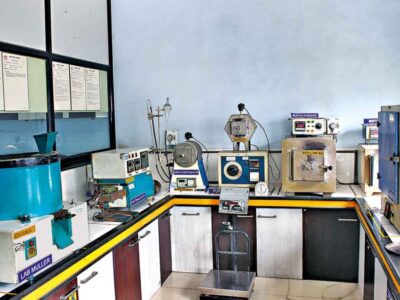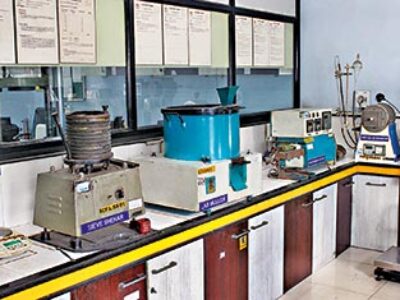
LAB QUALITY
S Group currently uses spectrometer analysis machine in its metallurgy lab. Before the metal is poured from the melting pot, a sample of molten metal is poured in to a small “coupon” mold and the casting quality is evaluated in the spectrometer. If needed, minor alloying elements are added to the material to bring the alloy melt into required specification. Then another coupon is tested and certified to ensure proper chemical composition.
The chemical composition of every alloy melt is tested and recorded in our database. We then electronically store the records for an indefinite period. This test is performed to ensure the alloy performance properties are to the specification(s) of the customer. Casting alloys are typically specified per ASTM, AMS and SAE alloy specifications.
Mechanical Properties Metal Casting Quality Inspection:
To confirm the properties of the metal cast part are correct, mechanical testing is performed to approve the metal of the casting. The testing confirms the properties comply per the specified mechanical requirements. The following mechanical properties testing methods are performed to confirm proper casting quality.
- Hardness testing:S group have Both Brinel and Impact Hardness Testing Facility it’s a non-destructive procedure that demonstrates the alloy’s machinability and wear resistance.
- Tensile testing: S Group Carried Out destructive casting quality test that provides ultimate tensile strength, yield strength, elongation and reduction of the material test specimen.


Sand Lab.
- Sand Sieve Shaker
- Mould Hardness Tester
- Permeability Meter
- Moisture
- Hot Tensile Tester
- Wet Tensile Tester
- GCS Machine
- Mold Permeability Meter
- Hot Plate
- Weighing Balance
- Oven
Met. Lab
- Optical Brinel
- Hardness Tester
- Unniversal Testing Mc.
- Spectrometer
- Image Analyzer
- Impact Testing Mc.

